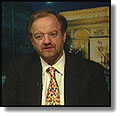
|
Human Rights Or Trade?The Labour Party has made a virtue out of its policy on human rights. The Labour Party manifesto, "Britain Deserves Better", stated that "Labour wants Britain to be respected in the world for the integrity with which it conducts its foreign relations. We will make the protection and promotion of human rights a central part of our foreign policy".
Human rights policy is rarely clear cut. The dilemma for any British Government is how to balance concern for human rights abroad with the need to protect British trade and employment. One example is how the previous Conservative Government faced a barrage of criticism over its decision to sell arms to Indonesia, a country with a poor human rights record. The Indonesian authorities carried out a bloody crackdown on students demonstrating in April 1996 at the University of Ujung Pundang in South Jalawesi. British-made armed personnel carriers were driven on to the campus and three students were killed. Forty days later, students at the University of Bundung in Java were commemorating those killed and were attacked by water cannon spraying ammonia. These water cannon were also exported from Britain. On 27 July, British supplied water cannon were used against opposition activists rioting in Jakarta. Five people were killed. Dye was used to mark out protesters, so that they could be found and punished later. Serious violations of human rights by Indonesia (including extra-judicial executions and torture) in East Timor have been well-documented by human rights organisations. Hawk jets were used to carry out low-flying bombing raids against the East Timorese in the late 1970s and 1980s, and human rights groups allege that British-made Hawks are still used for intimidatory purposes. The then Defence Secretary Michael Portillo defended the Government's policy towards Indonesia on the BBC's 'Election Call' in April 1997, and said "Around the world many countries have not reached the standard of human rights that we enjoy in long-established democracies such as the UK. But many governments are better than others, and they are better than the alternatives" The new Labour Government has not explicitly said that it will revoke the contracts to supply Hawks to Indonesia granted by the Conservative Government. Labour policy in Opposition was that the contracts would be revoked if sufficient evidence of their misuse was discovered. Labour has pledged that it "will not permit the sale of arms to regimes that might use them for internal repression or international aggression" The Foreign Secretary said on BBC Radio 4's "Today Programme" on May 12 that the Government had an eight point plan to make sure that the arms trade was properly regulated. Mr Cook said that Britain was one of the world's four largest arms exporters, and therefore had a special responsibility to ensure that the arms trade was properly regulated. The dilemma comes when the Government has to choose between turning down a contract to supply weapons to a regime which has a poor human rights record, or the loss of jobs in the defence sector in Britain. President Clinton recently declared "For the first time in all of history more people live under democracy than under dictatorship". However, Mr Clinton has encountered similar foreign policy dilemmas, largely over his administration's China policy. Virtually all opponents of the regime in China are exiled or jailed. Amnesty International figures reveal that in 1996 China carried out 80% (3500) of all known executions. President Clinton has sought to sever the link between trade and human rights in US policy towards China. China enjoys a privileged trade relationship with the US with its classification as "most favoured nation". In 1995 the US exported $15.9 billion worth of exports to China, and imported $39 billion worth of imports from China. On March 25 this year the US company Boeing clinched a contract worth £425 million to supply China with five passenger aircraft, and General Motors, in a joint venture with Shanghai Automobiles, secured a contract worth £975 million. Mr Clinton's dilemma is deepened by the attitude of the US Congress, which is pushing for a tough line on China following allegations that China illegally donated funds to his Democrat Party during last year's presidential election campaign. The expansion and globalisation of world trade has meant that human rights are increasingly pushed down the foreign policy agenda. The end of the Cold War, with its protectionist trade blocs and clear-cut 'enemy', has made the targeting of regimes with poor human rights issues an increasingly ad-hoc business. The three main political parties in Britain have understandably found it easier to condemn human rights abuses in those countries where Britain does not have extensive trade interests. Sudan and Nigeria have become pariah states, and face EU and UN arms embargoes and diplomatic sanctions. The perennial foreign policy dilemma, however, is how to protect British jobs while at the same time ensuring that British military equipment is not used for the harassment or repression of other nations. The new Labour Government is unlikely to find easy solutions to this dilemma. |
Diana, Princess of Wales, 1961-1997
Conference 97
Devolution
The Archive
News |
Issues |
Background |
Parties |
Analysis |
TV/Radio/Web
Interactive |
Forum |
Live |
About This Site
News |
Issues |
Background |
Parties |
Analysis |
TV/Radio/Web
Interactive |
Forum |
Live |
About This Site
© BBC 1997 |
politics97@bbc.co.uk |
